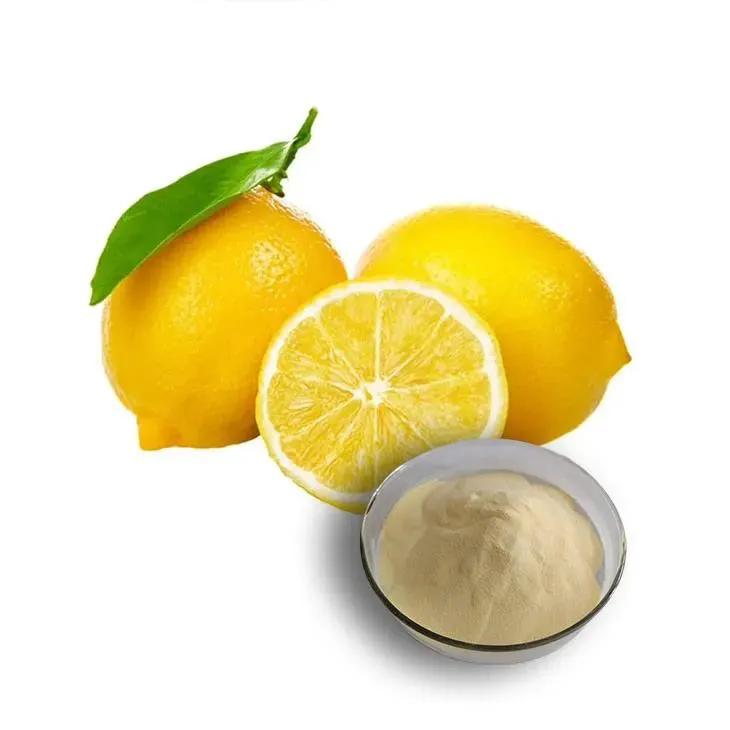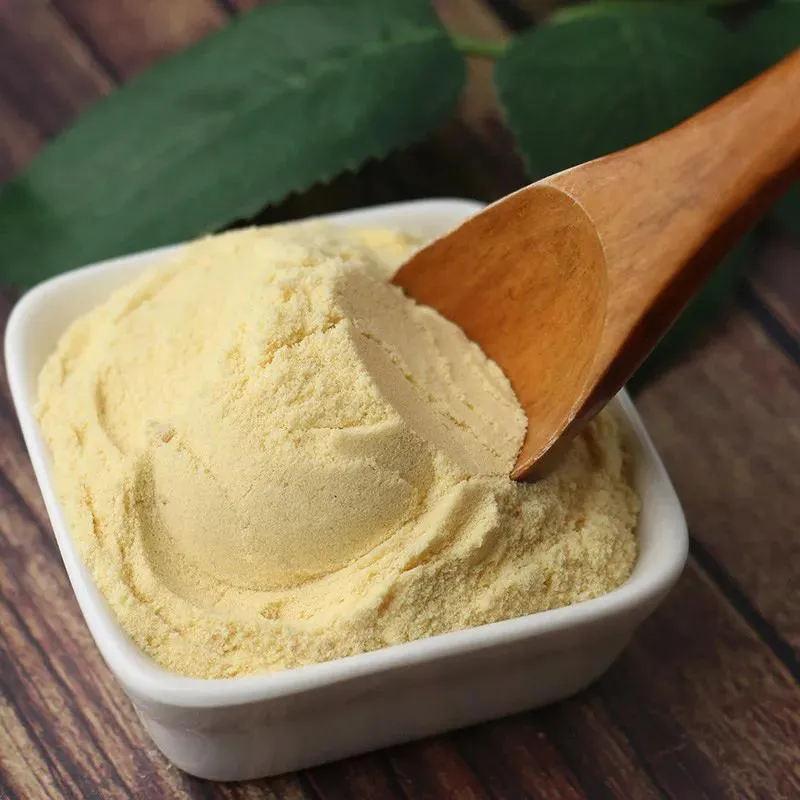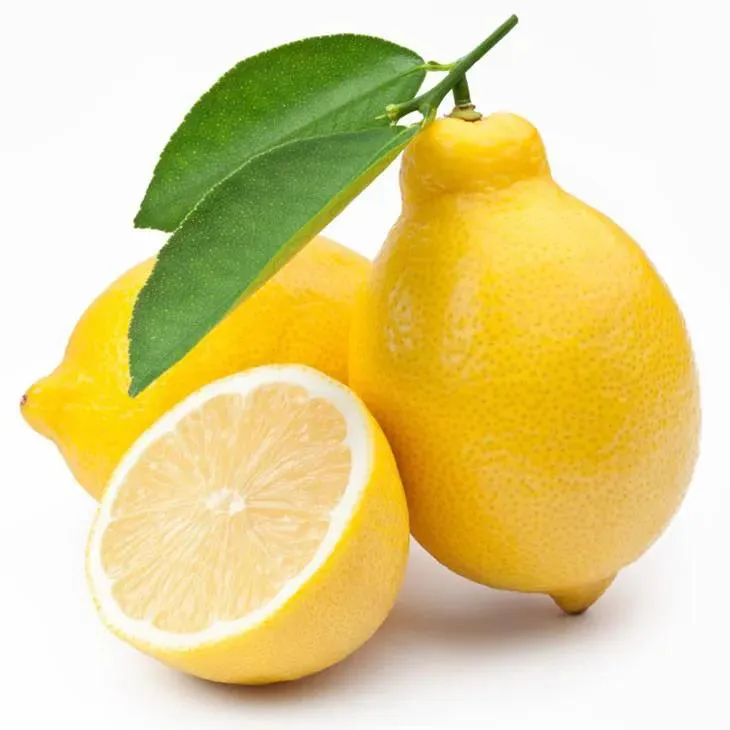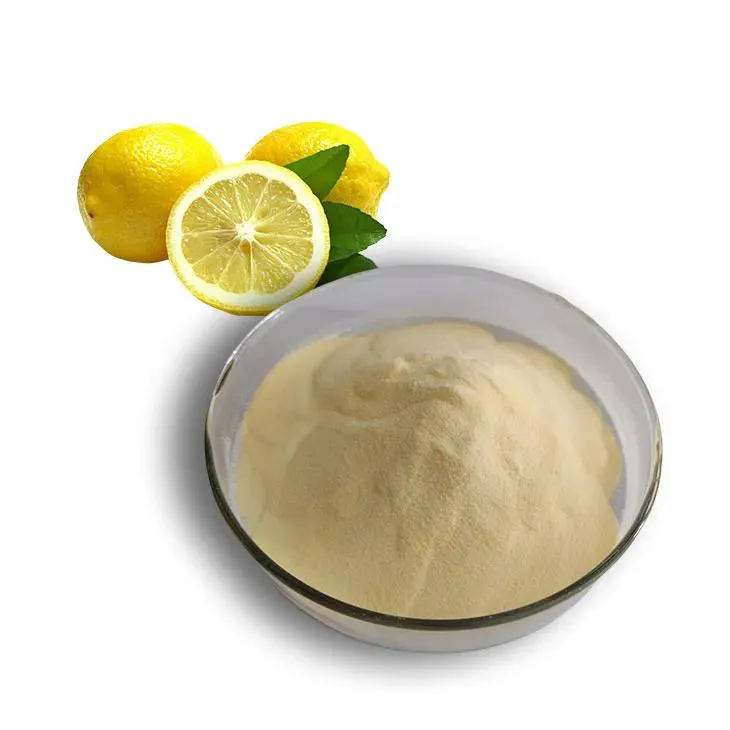- 0086-571-85302990
- sales@greenskybio.com
Organic lemon juice powder factory.
2024-12-01

Introduction to Organic Lemon Juice Powder
Organic Lemon Juice Powder has emerged as a remarkable product in the food industry. It is the result of converting fresh, organically grown lemons into a convenient powder form. This powder has become highly popular for several reasons. Firstly, it offers a concentrated flavor that can enhance the taste of various food and beverage products. Secondly, it has a relatively long - shelf life, which makes it suitable for storage and distribution over longer periods compared to fresh lemon juice.

The Production Process in the Factory
1. Raw Lemon Inspection
In an organic Lemon Juice Powder factory, the production process begins with a meticulous inspection of the raw lemons. The lemons are sourced from organic farms, and it is crucial to verify their organic authenticity. This involves checking for proper certification and compliance with organic farming standards. Additionally, the quality of the lemons is assessed. Only lemons that meet high - quality standards in terms of size, ripeness, and absence of defects are selected for further processing.
2. Juice Extraction
Once the lemons pass the inspection, the next step is juice extraction. This process is designed to extract as much of the valuable components from the lemons as possible. The lemons are squeezed using specialized equipment that can efficiently extract the juice while minimizing waste. The extracted juice contains not only the characteristic tangy flavor of lemons but also important substances like citric acid and vitamins. Citric acid gives the lemon its sour taste and also has preservative properties, while vitamins such as vitamin C are beneficial for health.
3. Drying Process
The drying process is a key determinant of the final product's quality. There are different methods employed in the factory, with vacuum - drying being one of the popular options. Vacuum - drying involves removing moisture from the lemon juice under reduced pressure. This method helps to preserve the flavor, color, and nutritional value of the lemon juice. Other innovative drying methods may also be used depending on the factory's technology and resources. The goal of the drying process is to produce a powder that can be easily reconstituted. When water is added to the powder, it should be able to recreate the original lemon juice flavor and properties as closely as possible.

Quality Control in the Factory
Quality control is of utmost importance in an organic lemon juice powder factory. Throughout the production process, every step is carefully monitored to ensure that the final product meets the highest standards.
1. During Raw Material Handling
As mentioned earlier, during the inspection of raw lemons, strict criteria are applied. Any lemons that do not meet the requirements for organic authenticity or quality are rejected. This initial step helps to prevent any sub - standard materials from entering the production line.
2. In - Process Monitoring
During the juice extraction and drying processes, various parameters are monitored. For example, in juice extraction, the pressure and efficiency of the squeezing equipment are checked regularly to ensure consistent extraction. In the drying process, factors such as temperature, pressure (in the case of vacuum - drying), and drying time are closely monitored. Any deviation from the optimal values can affect the quality of the powder, so immediate corrective actions are taken if necessary.
3. Final Product Testing
Once the lemon juice powder is produced, it undergoes comprehensive testing. The powder is tested for its flavor profile, ensuring that it has the characteristic lemon taste. Its solubility is also examined to make sure that it can be easily reconstituted. Nutritional analysis is carried out to confirm the presence of key components like citric acid and vitamins. Additionally, microbiological testing is done to check for the absence of harmful microorganisms, ensuring the safety of the product for consumption.

Research and Development in the Factory
Organic lemon juice powder factories are not just about production; they also engage in research and development (R & D) activities.
1. Process Improvement
R & D efforts are focused on improving the production processes. For example, researchers may be looking for ways to optimize the juice extraction process to increase the yield of valuable components. They may also be exploring new drying techniques that can further enhance the quality of the powder while reducing energy consumption. By continuously improving the processes, the factory can produce a higher - quality product more efficiently.
2. Product Diversification
Another aspect of R & D is product diversification. The factory may be exploring ways to develop new products based on organic lemon juice powder. This could include creating flavored blends with other fruits or adding additional functional ingredients to the powder. For instance, they could develop a lemon - ginger powder blend for use in health - promoting beverages or a lemon - lavender powder for use in baking to create unique flavor combinations.
3. Cost - Reduction Strategies
Cost - reduction is also an important part of R & D in the factory. While maintaining the organic and high - quality nature of the lemon juice powder, the factory aims to find ways to reduce production costs. This could involve finding more cost - effective sources of raw materials, optimizing energy usage in the production processes, or streamlining packaging to reduce material costs. By reducing costs, the factory can make its products more accessible to a wider range of consumers in the global market.

Applications of Organic Lemon Juice Powder
Organic lemon juice powder has a wide range of applications in the food and beverage industry.
1. Beverage Industry
In the beverage industry, it is used to make lemon - flavored drinks. It can be reconstituted to create lemonade, either on its own or as a part of a flavored blend. It is also used in the production of ready - to - drink beverages, where its long - shelf life and concentrated flavor are advantageous. Additionally, it can be added to cocktails to provide a tangy and refreshing lemon flavor.
2. Baking and Cooking
In baking, organic lemon juice powder can be used as a substitute for fresh lemon juice. It can add a lemony flavor to cakes, muffins, and cookies. In cooking, it can be used in various recipes, such as in salad dressings, marinades for meats, and in sauces. Its ability to dissolve easily makes it convenient for use in different cooking and baking applications.
3. Dietary Supplements
Due to its content of vitamins, especially vitamin C, and other beneficial components, organic lemon juice powder can also be used in dietary supplements. It can be formulated into tablets or capsules, providing a convenient way for consumers to get the nutritional benefits of lemons.
Environmental Considerations in the Factory
In today's world, environmental considerations are an important aspect of any manufacturing process, and organic lemon juice powder factories are no exception.
1. Sustainable Sourcing of Raw Materials
The factories ensure that the lemons are sourced sustainably. This means working with organic farmers who follow sustainable farming practices. These practices may include using natural fertilizers, conserving water, and protecting the soil quality. By promoting sustainable sourcing, the factory helps to protect the environment and ensure the long - term availability of raw materials.
2. Energy - Efficient Production
In the production process, efforts are made to use energy - efficient equipment and processes. For example, if using drying equipment, the factory may choose models that consume less energy while still achieving high - quality drying results. This not only reduces the factory's carbon footprint but also helps to lower production costs in the long run.
3. Waste Management
The factory also has to deal with waste management. During the juice extraction process, there may be leftover pulp and other waste materials. The factory may explore ways to recycle or reuse these waste materials. For example, the lemon pulp could be used for composting or in the production of other products such as animal feed.
Market Trends and Future Outlook for Organic Lemon Juice Powder
The market for organic lemon juice powder is influenced by several trends, and its future outlook appears promising.
1. Growing Demand for Organic Products
There is an increasing global demand for organic products in general. Consumers are becoming more health - conscious and are also concerned about the environmental impact of their food choices. Organic lemon juice powder, being a natural and organic product, benefits from this trend. It is seen as a healthier alternative to artificial flavorings and additives.
2. Convenience - Driven Consumption
In today's fast - paced lifestyle, consumers are looking for convenient food and beverage options. Organic lemon juice powder offers convenience as it has a long - shelf life and can be easily stored and used. It can be quickly reconstituted into a refreshing lemon - flavored drink or added to various recipes without the need for fresh lemons, which may not always be available or convenient to use.
3. Expansion in the Global Market
The global market for organic lemon juice powder is expected to expand. With increasing awareness and availability, more consumers in different parts of the world are likely to start using this product. The factory's efforts in research and development, cost - reduction, and quality control will play a crucial role in capturing a larger share of this expanding market.
FAQ:
What are the main steps in the production of organic lemon juice powder?
The main steps include thorough inspection of raw lemons for organic authenticity and quality, juice extraction to capture all essential components like flavor, citric acid and vitamins, and a drying process (such as vacuum - drying) to turn the juice into powder form.
Why is the drying process important in an organic lemon juice powder factory?
The drying process is crucial as it determines the final product's quality. It helps in creating a powder that can be easily reconstituted into beverages or used in food applications like baking and cooking.
How does the factory ensure the organic nature of the lemon juice powder?
The factory ensures the organic nature by thoroughly inspecting the raw lemons for organic authenticity at the beginning of the production process.
What role does research and development play in an organic lemon juice powder factory?
Research and development in these factories aims to improve production processes and product quality. It also focuses on reducing production costs while maintaining the organic and high - quality aspects of the lemon juice powder, making it more accessible to a wider range of consumers.
What are the applications of organic lemon juice powder?
Organic lemon juice powder can be used to make delicious lemon - flavored beverages when reconstituted. It is also useful in various food applications such as baking and cooking.
Related literature
- Title: Organic Food Production: Principles and Practices"
- Title: "The Science of Juice Powder Production"
- Title: "Lemon - Based Products in the Global Market"
- ▶ Hesperidin
- ▶ citrus bioflavonoids
- ▶ plant extract
- ▶ lycopene
- ▶ Diosmin
- ▶ Grape seed extract
- ▶ Sea buckthorn Juice Powder
- ▶ Beetroot powder
- ▶ Hops Extract
- ▶ Artichoke Extract
- ▶ Reishi mushroom extract
- ▶ Astaxanthin
- ▶ Green Tea Extract
- ▶ Curcumin Extract
- ▶ Horse Chestnut Extract
- ▶ Other Problems
- ▶ Boswellia Serrata Extract
- ▶ Resveratrol Extract
- ▶ Marigold Extract
- ▶ Grape Leaf Extract
- ▶ blog3
- ▶ blog4
-
The best lemon juice powder in nature.
2024-12-01
-
Organic Vitamin K2 Powder Suppliers
2024-12-01
-
Bulk purchase of L - tyrosine.
2024-12-01
-
Vitamin K2 Manufacturers
2024-12-01
-
100% Pure Natural Rutin.
2024-12-01
-
Chinese Citrus Bioflavonoid Suppliers.
2024-12-01
-
Polygonum multiflorum extract
2024-12-01
-
Golden Seal Extract
2024-12-01
-
Genistein
2024-12-01
-
Echinacea Extract
2024-12-01
-
White Peony Extract
2024-12-01
-
Astaxanthin
2024-12-01
-
White mustard seed extract
2024-12-01
-
Pomegranate Extract
2024-12-01
-
Citrus Aurantium Extract
2024-12-01
-
Almond Extract Powder
2024-12-01





















